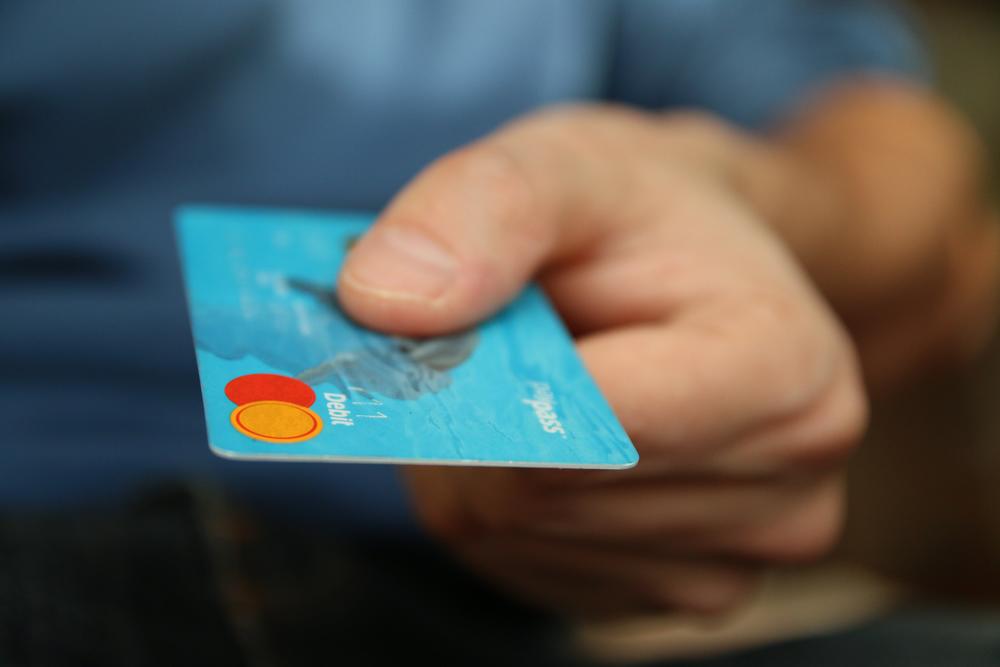
Section Branding
Header Content
Shopping scams ramp up during the holidays. What to watch for and how to protect yourself
Primary Content
LISTEN: Shopping scams ramp up during the holidays as more people go online and in-store searching for gifts for loved ones. GPB's Devon Zwald speaks with Jenna Sellitto and Tony Thomas with FBI Atlanta about how to protect yourself against them.

With the holidays here, many of you are probably spending some time online shopping or braving the malls looking for holiday gifts.
However you bring in the holiday cheer, Georgia officials want to remind you of some of the scams they’re seeing this year and how to avoid falling for them.
GPB's Devon Zwald spoke with Jenna Sellitto and Tony Thomas with FBI Atlanta.
Devon Zwald: So, Jenna, what are some of the top scams you're seeing this year?
Jenna Sellitto: So the top scams we're seeing are the typical ones where: Nonpayment non-delivery — you're buying something online and you don't receive it. You're not buying from secure websites, so you're not getting the product that you thought you were. The pop-up ads that are asking you to click on them to get a certain discount and then put in your information? They're actually stealing your identity sometimes.
So we're seeing a lot of that stuff as we typically do year-round, but it ramps up around the holidays, too, with people doing a lot more shopping.
Devon Zwald: And are there any scams that are more prevalent in Georgia, specifically?
Tony Thomas: Well, there's one that our cyber squad has notified of us. It's probably it's happening everywhere, I'm sure, but they've noticed it here in Atlanta. And it's a rather a new one, they've noticed.
You go to any of your retailers to buy a gift card. What the criminals are now doing — or we've noticed — is they're going in and they're basically shoplifting those cards, taking them out of the retail establishment. And they're scratching off the back of them to get to that code, writing the code down and then they're using foil and going back over the cards. And then they actually go to the extent of taking those cards back into that retailer that they shoplifted it from and returning them, basically.
So when you go and get a card off the shelf and you go and put money on it, you put a hundred bucks on it for your family member, they're alerted that that card has money on it now. They go spend that money before your relative may even open their present.
Devon Zwald: Wow.
Tony Thomas: Our agents are saying they're noticing that. When you go in to buy a gift card, look closely at the front and the back. If you notice any discoloration or the foil seems manipulated at all, hand that over to the store and grab a different one, because that's on the rise.
Devon Zwald: Generally speaking, who's targeted by these scams?
Jenna Sellitto: Everybody. Anybody and everybody that uses a credit card and shops online.
Devon Zwald: So all ages, all genders, every — everyone?
Tony Thomas: It does not matter, if you have Internet access, a cellphone or you shop online, you're targeted.
Devon Zwald: When someone does fall victim to a scam, how does it impact them personally or financially?
Tony Thomas: Well, financially, just through Oct. 15 of this year — and these are national stats — our Internet Crimes Complaint Center, ic3.gov, received 40,000 complaints nationwide. That's just this year. A quarter of a billion dollars' worth of loss to the victims. Last year in '22, $281 million. And the Georgia numbers in '22, more than 1,400 Georgians filed complaints. We believe the numbers are actually a lot higher than that. 1,400 actually filed complaints for $7.1 million. So that's just in Georgia.
Devon Zwald: That's a big impact. What are some steps that we can take to protect ourselves from scammers?
Jenna Sellitto: Everything that we're doing online, you need to be vigilant. Check to make sure that the site that you're looking at buying something on is secure and reputable. Just do a quick Google search to see where this company is located, what their reviews are, what people are saying about it. You know, check your credit card statements regularly. Set up alerts to see when your credit card has withdrawals from it so you can know immediately if you've had an unauthorized purchase on there. All — all sorts of things like this. Don't — don't click on unsolicited emails, links that are sent to you. Instead, you know, if you get an unsolicited email from Best Buy or something like that and they're asking to do something or provide information instead, you know, maybe go to the website and call the actual store and see what the situation is rather than clicking these — these links that are randomly getting sent to you.
Tony Thomas: You know, when you're young and in school, it was stranger danger? This is basically stranger danger for cyber. Don't trust anybody just to who they say they are.
Devon Zwald: So let's say someone does fall for a scam. What should they do next?
Jenna Sellitto: So we want them to do three things. The first and foremost thing is to call your bank. If you had money stolen, calling your bank is the first step to try to get your money back. The second thing is to report it to your local law enforcement, so there's a record of this happening. And third, we want them to visit ic3.gov. That's our Internet Crime Complaint Center. ... And report that so we can have a record of the crime that occurred and maybe we can compile the information and look at a trend to see who's actually behind some of these larger scams.

